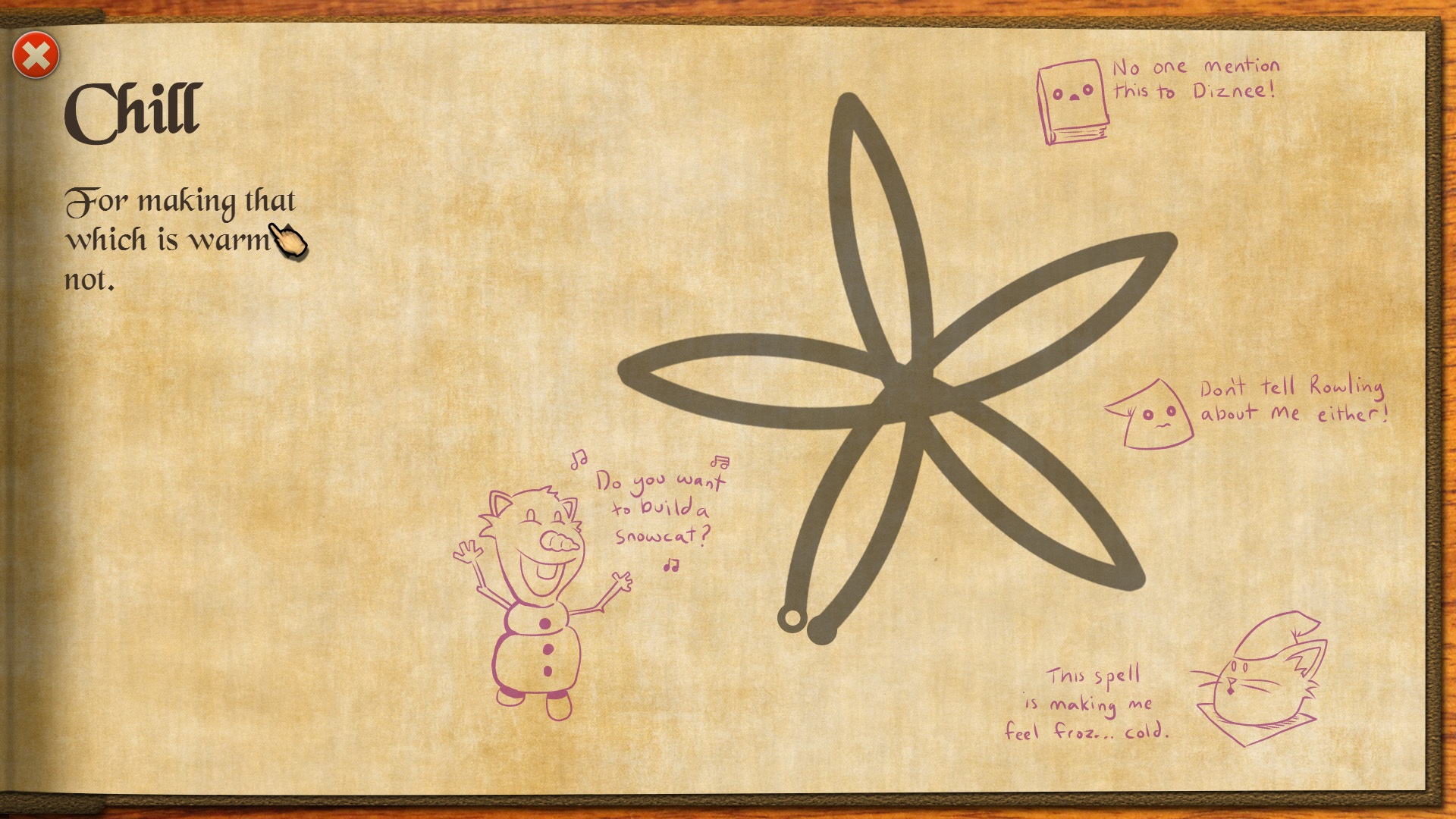Spell Casting Mac OS
Spell Casting Mac OS
Purify yourself and your place. Before casting a spell, your body energy and mind energy must be in. Reader Michael Glotzer would like to take a peek inside Apple’s spell checking dictionary. He writes: Do you know a tip to synchronize, review, and/or edit user additions to the OS X built in.
- Turn automatic spelling check on or off On the menu bar, click OneNote Preferences. In the OneNote Preferences dialog box, click Spelling. Under Spelling and AutoCorrect, check or clear the Check spelling as you type check box.
- I am not able to use Spell-Check in the Emacs on my Mac. I copied the.emacs file I had on my previous Fedora to my home folder in my Macbook. The '.emacs' has a line saying: (global-set-key 'C-k' '.
- How to use the built-in Mac OS X spell check in many applications like TextEdit, Mail and Safari. You can make it learn new words and reset your custom dictionary. Check out MacMost Now 164: Spell Check in Mac OS X Applications at YouTube for closed captioning and more options.

Symptoms

Spell Casting Cost 5e
When you use spell check in Word for Mac 2011, you may encounter one of the following problems:
Spell check does not identify misspelled words
The spell check language keeps changing
To resolve the spell check problem, follow these methods in order:
Do you have the same problem but with another Word for Mac version?
Click here to view spell check problems in Word 2008 for Mac
Resolution
Method 1: Set Document Language
To set Document Language, follow these steps:
Open a document in Word for Mac.
On the Edit menu, click Select All.
On the Tools menu, click Language.
Select the language dictionary you want the speller to use, such as English (US).
Uncheck Do not check spelling or grammar, and then click OK.
If the problem continues to occur, go to the next method.
Method 2: Set the language for the default Normal.dotm template
To set the Normal.dotm template language settings, follow these steps:
Open a blank document in Word for Mac.
On the Edit menu, click Select All.
On the Tools menu, click Language.
Select the language dictionary you want the speller to use, such as English (US).
Uncheck Do not check spelling or grammar, and then click Default.
Click Yes to accept changes that will affect all new documents based on the NORMAL template.
Click OK.
If the problem continues to occur, go to the next method.
Method 3: Check the Spelling and Grammar preferences
To check the spelling and grammar preferences, follow these steps:
Open Word for Mac.
On the Word menu, click Preferences.
Under Authoring and Proofing Tools, click Spelling and Grammar.
The following options should be selected (checked):
Check spelling as you type
Check grammar as you type
The following options should not be selected (unchecked):
Hide spelling errors in this document
Hide grammatical errors in this document
Click OK.
If the problem continues to occur, go to the next method.
Method 4: Check the Input Sources language settings
To check the Input Sources language settings, follow these steps:
Quit all Office applications.
On the Apple menu, click System Preferences.
Under Personal, click Language & Text.
Click Input Sources.
Set the Input Sources language to the desired language Word should use.
Restart the Mac.
If the problem continues to occur, go to the next method.
Method 5: Move the Normal.dotm template
Important If Normal.dotm is renamed, damaged, or moved, Word automatically creates a new version the next time you start Word. The new version will not include any of the customizations that you made to the version that you renamed or moved.
To move the Normal.dotm template, follow these steps:
Quit all Office applications.
On the Go menu, click Home.
Open Library.
Note The Library folder is hidden in Mac OS X Lion. To display this folder, hold down the OPTION key while you click the Go menu.Open Application Support, and then Microsoft.
Open Office, and then User Templates.
Drag normal.dotm to the desktop.
Restart the Mac.
If the problem is resolved, you can drag the normal.dotm file from the desktop to the Trash.
If the problem continues to occur, go to the next method.
Method 6: Remove Word preferences
To remove Word preferences, follow these steps:
Quit all Office applications.
On the Go menu, click Home.
Open Library.
Note The Library folder is hidden in Mac OS X Lion. To display this folder, hold down the OPTION key while you click the Go menu.Open Preferences.
Drag com.microsoft.word.plist and the Microsoft folder to the desktop.
Restart the Mac.
If the problem continues to occur, select an option in the References section of this article to look for more help.
References
If the information in this knowledge base article did not help resolve your problem, select one of the following options:
More Microsoft online articles:
Perform a search to find more online articles about spell check problems in Word for MacHelp from the Microsoft Answers online community:
Visit the Answers community and search or post your Word for Mac spell check problemsContact Microsoft support:
Find the phone number to contact Microsoft Support
A SIMPLE STEP-BY-STEP GUIDE
As you may know—all too well—Apple’s Mac OS X doesn’t offer native support for Romanian spell checking. Quite an embarrassment.
However, it is possible to install a Romanian spell-check dictionary (with diacritics and all)—in three fairly easy steps—available to all applications using system spell-checking services, like Mail, Pages, Keynote, Safari, iChat etc.1
Here is how to add system-wide Romanian spell-check dictionary to Mac OS X—a simple step-by-step guide.
Step 1. Install Aspell and cocoAspell
Aspell is a Free and Open Source spell checker, cocoAspell is a Mac OS X system services interface for Aspell.
Action: Go to cocoAspell homepage and download the installer—currently at version 2.1. The package will install Aspell and a Spelling preference panel to control cocoAspell.
Outcome: If all goes well a Spelling preference panel will appear in System Preferences.
Step 2. Install the Romanian dictionary
We have the engine, now we need a compatible Romanian spell-check dictionary—say hello to Aspell Romanian Dictionary Package.
Spell Casting Mac Os Download
Action: Open the Official Aspell Dictionaries FTP directory, scroll to “Română” and get aspell5-ro-3.3-2.tar.bz2. Expand it an move the resulting aspell5-ro-3.3-2 folder to ~/Library/Application Support/cocoAspell/.
If this sounds frightening, let me do it for you—just open a Terminal window and paste the following instructions one at a time:
Outcome: Opening the System Preferences → Spelling panel will require Aspell to compile the dictionary. You should get the following message:
And then:
Consequently, Romanian should appear in the Spelling panel’s dictionaries list—and you need to enable it:
Step 3. Use the Romanian spell checker in applications
In order to use the newly installed dictionary, you need to select it in your spelling preferences.
Action: In you application of choice select from the menu bar: Edit → Spelling → Show Spelling and Grammar:
In Pages, select from the menu bar: View → Show inspector → Text → Language → Română:
Outcome: After selecting the Romanian dictionary, the spelling engine should switch to Romanian.
Final notes
- If this works for you, donate to Anton Leuski via the PayPall Donate button oncocoAspell page2;
- Please note that this tutorial is provided ‘as is’, and I’m not responsible should any data loss occur—a backup is always a good idea. If in doubt, consult maintainer’s installation instructions, f.a.q. and troubleshooting pages;
- Kudos to the Romanian team3.
Spell Casting Mac Os Catalina
1 The Romanian spell-check dictionary will not be available to applications using their own spell checking engines, like Word, Excel, PowerPoint, Illustrator or InDesign etc.
2 I paid $10 via PayPall Donate.
3 Lucian Constantin (rospell), Alexandru Szasz (Mozilla and OpenOffice.org Romanian Translation Team), Ionut Paduraru (http://www.archeus.ro), Adrian Stoica (OpenOffice.org Romanian Translation Team), Nicu Buculei (OpenOffice.org Romanian Translation Team), Catalin Francu (DEX Online Team, http://dexonline.ro), Ionel Mugurel Ciobica (previous aspell releases) and Mihai Budiu (ispell dictionary).
Spell Casting Mac OS
